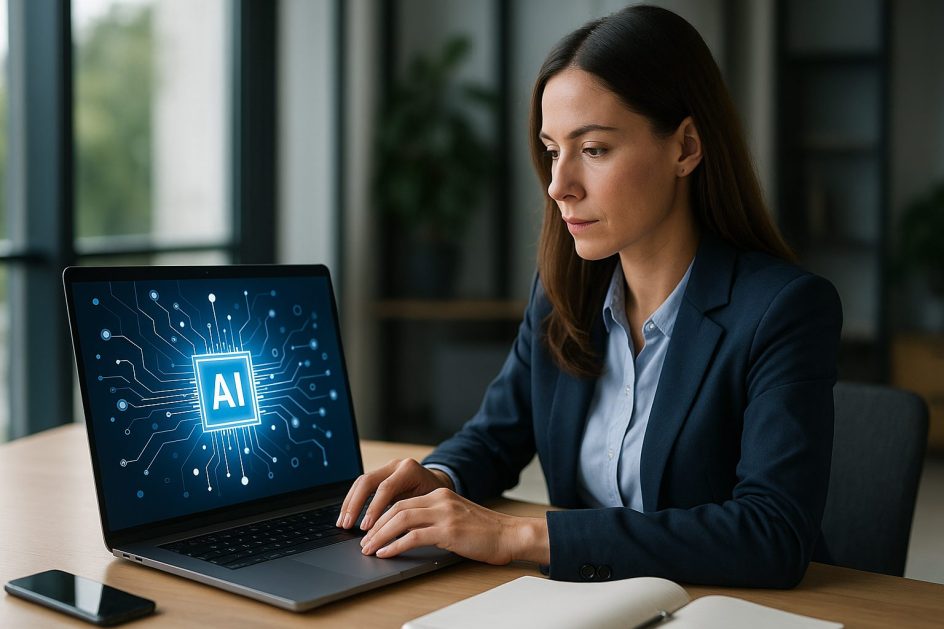
How companies can support the development of AI skills among employees
The most profound technologies are those that disappear. They weave themselves into the fabric of everyday life until they are indistinguishable from it – Mark Weiser
Artificial intelligence (AI) has emerged as a pivotal topic in recent years, and rightfully so. According to the Future of Jobs Report by the World Economic Forum (2023), it is projected that 23 % of jobs will undergo significant changes in the next five years, and six out of ten workers will require training before 2027. However, only half of the workforce is expected to have access to adequate training opportunities.
Individual differences that influence technology adoption
Although the need to develop employee competence is widely recognized, there remains a gap in how to ensure that employees receive adequate training. Individual factors such as age, gender, experience, and voluntariness significantly influence how employees perceive and adopt new technologies.
- Age: Especially after the age of 45, employees may need more support. Life stage matters too: rush years and approaching retirement age are lowering the intrest of adapting new technologies.
- Gender: women tend to perceive their technological abilities lower than their male counterparts, even when their baseline knowledge is comparable. Overall, women are more prone to social influence by their working community.
- Experience: earlier experiences are affecting the prejudice of new technlogies. If employee is not experienced with technologies, some level of technostress is more likely to occur.
- Volunteriness: Involving employees in decision-making, alongside supportive leadership and a clearly communicated vision for change, plays a key role in lowering employee stress levels.
Practical actions for deploying AI, or any other technological change, in the workplace
A master’s thesis from Turku University of Applied Sciences entitled ”From Resistance to Resilience – Understanding Employees’ Perceptions and Supporting the Technological Adaptation Process of Artificial Intelligence” examined employees’ perceptions of their ability to adapt to AI technologies and the support provided by employers. The focus was on individual perceptions and experiences.
According to the results of the thesis, change can be a stressful process for employees, rising both negative and positive emotions. However, when new technology is seen as beneficial and simple to use, it tends to face less resistance from employees. To support smoother transitions, it is essential that change is made personally relevant to each individual and demonstrated through practical examples. This involves clearly communicating why the change matters and what they gain from it.
Based on individuals characteristics how they are perceiving their competence to adapt with new technologies, they can be divide into four groups: digital experts, skilled professionals, survivors and strugglers. Experts are good to involve early in the implementation process to collect feedback and test new practices. During the implementation process strugglers and survivors should be paid the closest attention. Experts can also act as mentors for those who struggle, fostering a culture of peer support.
Additionally, employees expect that continuous learning is not only their personal responsibility but also embedded in company culture. This can be supported by establishing a learning-oriented workplace, assigning tasks that match skill levels, and offering structured development programs. Continuous, low-threshold assistance is essential.
Managerial support is closely linked to employees’ satisfaction with learning opportunities. Companies must ensure that supervisors are equipped with the necessary knowledge and tools to guide employees on their learning paths.
Image: OpenAI, DALL·E image generation via ChatGPT, created 8 June 2025.
References:
Liias, E. 2025. From resistance to resilience – Understanding employee perceptions and supporting technological adaptation process of artificial intelligence – Theseus, Master thesis, Turku University of Applied Sciences
World Economic Forum. (2023). Future of Jobs Report. https://www.weforum.org/publications/the-future-of-jobs-report-2023/